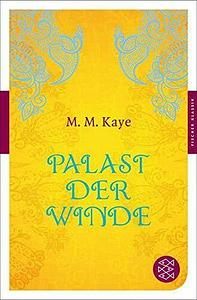Take a photo of a barcode or cover
My favorite book of all time! I read it first when I was 14 and have read it numerous times since. M.M. Kaye has become my favorite author and I wish that I had had the privilege to tell her so. Getting lost in the fascinating worlds she creates is easy and her characters seem like close friends. Read this book.
adventurous
emotional
informative
slow-paced
Plot or Character Driven:
A mix
Strong character development:
Yes
Loveable characters:
Yes
Diverse cast of characters:
N/A
Flaws of characters a main focus:
Complicated
adventurous
challenging
informative
inspiring
sad
slow-paced
Plot or Character Driven:
A mix
Strong character development:
Yes
Loveable characters:
No
Diverse cast of characters:
Yes
Flaws of characters a main focus:
Yes
I have a lot of mixed thoughts about this book, one I had never heard of before viewing a BookTube recommendation video for historical fiction. I loved the beautifully written prose and setting of India. This was my first book I've read that was set in India, and I appreciated the historical background and cultural nuances the author addressed.
However, I did not understand the point of the final portion of the book, after. I felt lost and very confused. I also had trouble keeping track of all of the different characters, but perhaps it is because it is such a complex and expansive novel.
However, I did not understand the point of the final portion of the book, after
Spoiler
Ash and Juli's honeymoonBefore this, I'd only read Kaye's short children's fairy tale, The Ordinary Princess. For some reason, I thought that this was also a fantasy, but it is not. It is an epic tale of love, identity, brotherhood. Set in 19th century India, it focuses on Ash, a boy who spends most of his childhood believing he is Indian until his adoptive mother reveals the fact that his parents were white and he is actually English. You can tell that Kaye spent a lot of time in India through the rich and nuanced portrayal of the various people groups encountered throughout the story. She is very clearly not sympathetic to British imperialism, but her British characters are anything but simplistic. Although the audiobook is over 48 hours long, this book held my attention through (mostly) the whole tale. Book Eight is just a bit too long with the set up to the action. But the ending is sad and moving and just about perfect for the book.
adventurous
emotional
informative
slow-paced
Plot or Character Driven:
A mix
Strong character development:
Yes
Loveable characters:
Yes
Diverse cast of characters:
Yes
Flaws of characters a main focus:
Yes
Chock block full of information written in a way that is captivating, even if it is info-dumpy-ish in a way.
I love the setting of the book. I was pained by the greed and power that causes all this suffering and human misery to occur (as well as development of course!).
Ash straddles the fence. I can relate to him, being a 'fence-straddler' myself. His journey, his love, his trials were all a pleasure to read.
The brief story about his parents and Ash's childhood arc were my favourite parts of The Far Pavilions.
Reuniting with Juli, I was caught unaware. What a shocker! As another reviewer mentioned, their love story made sense. They bonded over a shared set of experiences and circumstances. Their parting was sad. Almost as sad as the times Ash's servants/long time companions die.
Wally and Ash's growing apart seems natural and sad when I think of my own companions. Up and down. I chalked it up to everyone having their own path in life to walk and realize stuff. To each his own.
Sir Louis and all those high up in the ranks were irritatingly real. Their reasonings and action plans concerning Afghanistan, their utter lack...now there's an example of a top-down chain of command and of imperialist (colonial) mentalities.
The Indian army piques my interest and I look forward to stumbling upon more books about it.
I love the setting of the book. I was pained by the greed and power that causes all this suffering and human misery to occur (as well as development of course!).
Ash straddles the fence. I can relate to him, being a 'fence-straddler' myself. His journey, his love, his trials were all a pleasure to read.
The brief story about his parents and Ash's childhood arc were my favourite parts of The Far Pavilions.
Reuniting with Juli, I was caught unaware. What a shocker! As another reviewer mentioned, their love story made sense. They bonded over a shared set of experiences and circumstances. Their parting was sad. Almost as sad as the times Ash's servants/long time companions die.
Wally and Ash's growing apart seems natural and sad when I think of my own companions. Up and down. I chalked it up to everyone having their own path in life to walk and realize stuff. To each his own.
Sir Louis and all those high up in the ranks were irritatingly real. Their reasonings and action plans concerning Afghanistan, their utter lack...now there's an example of a top-down chain of command and of imperialist (colonial) mentalities.
The Indian army piques my interest and I look forward to stumbling upon more books about it.
Świetna powieść historyczna, ale bardzo kiepski romans. Genialne źródło ucieczki od rzeczywistości do XIX-wiecznych Indii Brytyjskich.
first half was good; second half dragged on interminably.
too much telling and not enough showing.
too much telling and not enough showing.
The last "book" (or part) didn't quite mesh with the rest of the novel, which works fairly well as a love story, albeit the focus on sati as a major plot device strikes me as a little too Victorian white savior-y - even as the rest of the descriptions of Indian culture, both Hindu and Muslim, come alive very well.




